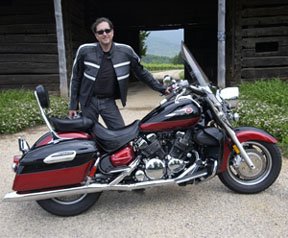The most common question asked of photography professionals is also the most annoying because there really isn't any correct answer. The question comes in a few different forms: "What is the best camera?" or "What camera should I buy?" or worse, "What camera should I buy for my _______?" Enter father, mother, brother, spouse or significant other in the blank.
A professional shooter knows that the best camera is the one that you have with you when you need to take the picture. However that answer will only alienate the dear friend or relative who is seriously looking to you for advice, plus cement your reputation as a smart aleck, joker or wisenheimer. I've have learned that the solution is to play detective and ask some questions before making a recommendation.
Will the user have any interest in learning the camera's operation? My father had me purchase a Canon PowerShot as a gift for my mother on her 80th Birthday. I dutifully researched the models and purchased a camera and small snapshot printer within the price range he indicated. My mother has never used the camera and it's my fault, kinda-sorta, I never realized that my Dad actually wanted the new camera for himself. My Mother has no interest at all in taking photos. This taught me that before you buy someone a camera you should ask if they would actually use a camera if they had one.
Another question I've learned to ask is: "What type of photos will this person be taking?" In other words, will Uncle Bob be shooting family snaps at social events and vacations or does he dream of being the next Ansel Adams or Richard Avedon? (The answer to the latter is to tell Uncle Bob to go and pick out a camera for himself while you buy him a necktie.)
Now that you're even more confused about which camera to buy I will simplify it for you: It doesn't matter! Every compact digital or advanced DSLR produces technically remarkable photographs. Chalk it up to globalization or advanced corporate espionage but the differences in cameras among the major brands are small and each manufacturer makes models to fit every price point. So as far as I'm concerned the most important question is, "What is your budget?" Which is a bit more polite than, "How much cash have you got?"
So you've decided on the budget and you're going shopping, the most confusing feature you'll encounter is Megapixels.
The biggest selling point that camera manufacturers use is the number of megapixels that their unit offers. It is a fallacy is that the more megapixels the better. Big megapixel numbers surely sound impressive, especially if you don't know what a megapixel is.
A megapixel is 1,000,000 pixels. To understand what a pixel is look at photo in a newspaper. Notice that the photo is made up of lots of little dots. In the old days of film photography we would have to convert the photograph to dots, they are called halftones. Today with digital photography the image from the camera is already in dot form, those dots are called pixels.
Television is where pixels came to being. Your standard television set has 425 pixels/dots top to bottom. If you are lucky enough to have a new HD television you have 1020 pixels top to bottom. In photography we measure pixels by how many are in an inch or how many there are in an image.
Most computer screens are set to 72 pixels/inch. A 1-megapixel file will fill your high-def screen and a 10-megapixel camera will give you a file large enough to fill the Diamond Vision screen at new Yankee Stadium.
If the only thing you do with your photos is print 4x6 photos for your album and load your images to Facebook you don't need a massive DSLR like a Canon 5D or Nikon D100, a Kodak Easy-Share will do you fine. And the beauty of these smaller cameras is that you'll always have it with you when you need it!
Now that you understand that massive megapixel capture is irrelevant unless you're making poster size prints or billboard you can settle on some other important things like what color camera you want. Yes, cameras are no longer just silver or black they come in colors!
Another important feature is the size of the screen at the back of the camera. The larger the screen the easier it will be to review the image, especially if you need glasses to read. In fact, if you need reading glasses you need to have your glasses on when you shoot. No way around that.
Here's the deal, photography is fun, if you're not having fun and capturing fun memories with your camera then something is wrong. Perhaps your money would be better spent on therapy and medication or an extended vacation. But then you won't have those vacation photos to share!
One final bit of camera buying advice; if you're young daughter is a big Ashton Kutcher fan and talks about him in those humorous Nikon television commercials then a Canon or Olympus just won't cut it. Buy her the Nikon she wants and be a hero.
Margo Ovcharenko: Overtime
16 hours ago











No comments:
Post a Comment